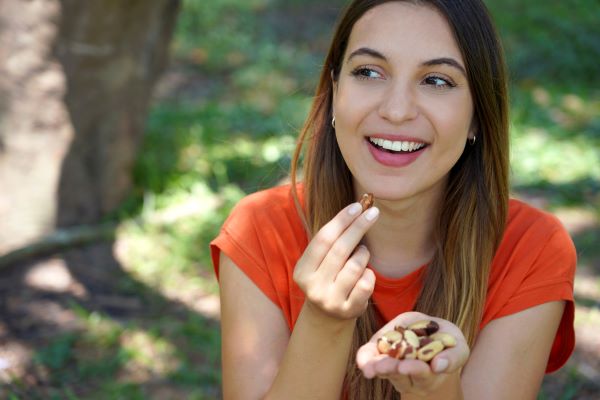-
We tend to be rather dismissive of ‘play’ as adults. Adulthood, and all the associated responsibility and stress, cultivates a feeling that everything we do should have a purpose. After all, if it doesn’t why should we take time out of our busy schedule to do it?
This is the very antithesis of play: in play the act is more important than the outcome and it’s both voluntary and pleasurable rather than ‘useful’.
But what if play was more important than we realised? What if play was the key to being a ‘better’ adult?
How we play in our youth is how we prepare for adulthood. Play is how we navigate social groups, learn how to manipulate objects, solve problems and develop the ability to take risks and cultivate our imagination and creativity as children. Bearing all of this in mind it seems reasonable that play could help us foster these skills in later life.
Why should we play?
Research conducted by the University of Illinois in 2013 revealed that playful individuals actually experience less perceived stress than those who had lower levels of playfulness.
Playful young adults were much more likely to be able to use adaptive coping styles when confronted with stressors. They were also more likely to meet and adapt to challenges rather than trying to escape the stressor-induced problems. The study concluded that embracing playfulness may make us more resilient: a useful attribute for any adult trying to navigate modern life.
Why do we stop playing?
The natural tendency to play is innate, so it seems strange that we lose it as we grow older. Daniel Teitelbaum, facilitator of ‘The Serious Business of Playfulness’ workshop at the School of Life in Melbourne, suggests that as we move into adolescence we squash our desire to play in order to distinguish ourselves from our childlike selves.
When we become fully fledged adults, with all the associated rights and responsibilities, we make fulfilling our commitments the centre of our worlds. It’s how we judge ourselves on being ‘grown-ups’.
Our avenues to relieve those stresses become entirely ‘adult approved’ activities: eating out, drinking, going to the movies, reading a book. Whilst these are excellent uses of our time it leaves little room for playfulness and we often choose the same leisure activities time and time again. Rather than limiting our choices, a playful approach opens us up to new possibilities.
Daniel says, “Expanding our experiences expands our ability to approach new situations, feel confident and resilient in handling challenges and broadens our understanding of ourselves and the world.”
How can we get a sense of playfulness back?
Daniel suggests that getting back to playfulness starts with identifying with how you played as a child. Pioneered by Dr Stuart Brown, founder of the National Institute of Play, this idea involves tuning into the kind of play that sparked your creativity as a child and applying it to your adult life.
Brown outlines eight ‘play personalities’ that allow us to tap into what made us tick as kids. For example the ‘kinesthete’ finds joy in moving and physical play, whereas the ‘explorer’ finds theirs in new experiences, whether physical, mental or emotional.
For some, physicality plays no part at all. Loved make believe games? Perhaps you’re a ‘storyteller’ who finds motivation in unlocking and bringing stories to life. If colouring was what kept your absorbed you might be an ‘artist/creator’ who finds joy in making things as an adult.
This individual approach comes as a surprise and relief to someone like me, who never really found joy in the rough and tumble aspects of play as a child. Rather this approach allows me to really think about what it is that sparks my creativity and how I can carve out time for it in my day to day.
We can apply these principles at work too. What if, like children, we approached tasks with a sense of freedom and a willingness to get creative even if it doesn’t necessarily lead to the right answer? What if we gave ourselves permission to explore ideas without the limitations of a time slot or stopped being scared of ‘getting it wrong’?
If we truly understood what sparked our creativity, be it storytelling, creating, exploring or collecting and how to manifest that passion into our work, we might uncover opportunities or ideas that wouldn’t have presented themselves otherwise.
Try Daniel’s workshop, The Serious Business of Play, or plenty of other stimulating classes at The School of Life in Melbourne or Sydney.
Can playing like a child make you a better adult?

-
How to prevent and treat dental injuries
Specialist dentist Associate Professor William Ha shares some tips on how to keep your teeth safe during sports by wearing a mouthguard.
-
The many benefits of volunteering
When you volunteer, the good doesn't stop there. Research has found that those who give their time for something are usually happier and healthier than those who don’t.
-
Eat for your eyes
Some of our favourite foods to help keep your eyes healthy.
-
How is ‘phubbing’ hurting your relationships?
Here’s how to stop phubbing and be more mindful of your phone habits, to help improve face to face interactions with your family and friends.
-
Are the winter blues real?
Simple ways to boost your mood in winter.
-
Mental fitness explained
Just as you work to strengthen your body, your mental health deserves attention and exercise too.
Subscribe to receive the best from Live Better every week. Healthy recipes, exercise tips and activities, offers and promotions – everything to help you eat, move and feel better.
By clicking sign up I understand and agree to Medibank's privacy policy





